- With the unfortunate cancellation of the physical Cereals Event this year due to Covid-19 we are unable to invite you to our stand at the show. However, we are still keen to share with you our thoughts on the prospects for UK arable farming and present the information we usually have on our boards. Therefore, we will be conducting a virtual ‘tour of the stand’ on Monday 8th June. The presentation will be led by Richard King and there will be an opportunity to post questions during the session. The Briefing will commence at 4.00pm and will run until approximately 4.20pm. To reserve your place please follow this link – https://attendee.gotowebinar.com/register/2375741569447559436. Please note that places are limited. We hope that you will be able to join us.
- The Government has added to the schemes available to help businesses cope with the effects of the Coronavirus outbreak. The new Bounce Back Loan Scheme (BBLS) opened on 4th May. Unlike the Coronavirus Business Interruption Loan Scheme (CBILS), the Government will guarantee 100% of the loan under BBLS, as opposed to 80%. This means that the banks providing the loans have a much lower requirement to undertake due-diligence on the application. Loans of between £2,000 and £50,000 are available. The Self-Employed Income Support Scheme (SEISS) is now also available which will be of interest to many self-employed farmers, and the Coronarvirus Job Retention Scheme (Furlough) has been extended until the end of October. However, from August the scheme will alter.
- Following intense lobbying, the Government has announced targeted support for dairy farmers affected by the Covid-19 outbreak. Businesses in England and Wales which have seen their income drop by more than 25% during April and May will be able to claim under the scheme. The support will be equal to 70% of the lost income for these months, up to a maximum of £10,000. More details on the scheme, including how to apply, are still awaited. Please speak to a consultant if you require advice on any of these schemes outlined.
- The UK has set the tariffs that have to be paid on imports entering the UK after the end of the Brexit Transition Period when it will replace the EU Common External Tariff (CET). If there is no trade deal in place with the EU by the end of the Transition, then these tariffs will also apply to imports from the EU as from 1st January 2021. The new tariff regime represents somewhat of a U-turn from earlier Government policy as UK farming will continue to receive protection from cheaper global imports, differing substantially from the big reductions initially proposed in March 2019. Most of the tariffs under the CET have been maintained at pretty much the same levels, but converted from Euros into Sterling. Effectively, the protection around the UK market will be kept at the same level as it was around the EU Single Market.
- The Agriculture Bill passed its remaining stages in the House of Commons in May. An attempt by some Conservative MPs to get an amendment included in the legislation that would have made imports of food meet UK standards on animal welfare, the environment and food safety, was defeated by 328 votes to 277 and the Bill itself passed by 360 votes to 211. It now passes to the House of Lords.
- The Government has confirmed that the domestic Renewable Heat Incentive (RHI) scheme will remain open until 31st March 2022, however the non-domestic element will close on the 31st March 2021. The Government has issued a consultation (closing date 7th July) on future support for low-carbon heating.
- This month’s Spot Light feature examines the latest trends in the UK’s Total Income from Farming (TIFF). Click here for more information.
Category: Inside Track
Farming in Focus InBrief – May 2020
- Andersons’ consultants are continuing to support their clients during the pandemic. If you require any advice, please contact your usual consultant, or the office on 01664 503200 or email [email protected]
- England has joined Wales in extending the 2020 BPS application deadline to 15th June. However, in both countries, land must be at the claimant’s disposal on 15th May and the entitlement transfer deadline is also 15th May. The period for amending claims without penalty moves to 30th June with an absolute deadline of final submission of applications and claims (but with penalties) of the 10th July.
- In England, the annual revenue claim deadline date for Environmental Stewardship and Countryside Stewardship has also been extended by a month to 15th June. However, new Countryside Stewardship applications for 1st January 2021 start date remain 1st May and 31st July for Higher and Mid-Tier respectively.
- The next round of the Woodland Carbon Guarantee Scheme will open from 8th – 19th June in England. This scheme allows those planting woodlands to sell carbon credits to the Government at a guaranteed price up to 2055.
- The expression of interest window for Glastir Woodland Creation is now open and will close on 12th June. Also in Wales, Farming Connect will be opening the next application round for accredited courses on 9th May, this will close on 26th June. The Welsh Government has also announced, the claim deadline for the Glastir Small Grants – Landscape and Pollinators 2019, has been extended until 30th September 2020.
- The Government has stated that there will be no extension to the end of the Brexit Transition Period beyond 31st December 2020. Speaking on the 16th April a Government spokesman stated “we will not ask to extend the Transition. And, if the EU asks, we will say no. Extending the Transition would simply prolong the negotiations, prolong business uncertainty, and delay the moment of control of our borders.” The negotiations themselves restarted on the 15th April by videoconference. There is still wide divergence between the sides as the deadline for extending the Transition Period (30th June) looms.
- The Government has launched a new website, ‘Pick for Britain’ aimed at recruiting British workers for harvesting and processing roles, mainly in the horticulture sector. The aim is to encourage workers on furlough, students and others to fill the estimated 80,000 seasonal fruit and veg vacancies through the summer months. The site can be found at – https://pickforbritain.org.uk/. Although there has been significant initial interest from potential workers, this seems not to have yet translated into large numbers of people on farm. The expectations of employees and employers appear to be mismatched. Workers are often discouraged by the location of jobs, conditions and pay. Employers seem dubious about the skills and motivation of UK staff and would prefer their traditional East-European workers.
- The Government has produced its key findings from the review of the AHDB. Its response suggests the levy board’s activities should be structured around ‘market development’ and ‘improving farm performance’. Levy payers should also be allowed to vote on a 5 year plan for each sector.
- The Welsh Government has published draft legislation that would make the whole country a Nitrate Vulnerable Zone (NVZ). This would impose new restrictions on the storage and spreading of slurry, manure and nitrogen fertiliser, including closed periods for applications.
- Sales of fungicides containing the active ingredient epoxiconazole will end on 31st October 2020. Product already on farm can continue to be used until 31st October 2021.
Spot Light on: Covid-19 Impacts on Farming
There has, of course, been only one topic that has dominated everything else over the past few weeks. This article provides some initial thoughts on how the pandemic might affect agriculture and the wider economy.
Short Term
- The Consumer: Supermarket shelf-stripping has been a consequence of both panic buying and a requirement to replace the food usually purchased via food service, restaurants, coffee shops etc. Consequently, the demand from retailers for most goods including milling wheat for bread and biscuits has rocketed; the broiler kill rate has gone up sharply and the demand for other meats has also increased. Total food requirements should not change overall, but it is taking a while for these supply lines to re-route to where the food is needed.
However, eating habits in the home differ from the restaurant or food service. With no eating out, consumption of expensive cuts of beef and lamb and ‘top-end’ cheeses such as Stilton have fallen sharply. We would expect more demand for chicken and lower priced pig and beef meat for burgers and sausage style foods. - Prices: Commodity prices move when demand and supply are not aligned. Expect some volatility. Overall trends may take some time to establish according to how the supply chain manages the flow of goods and how the consumer changes their habits. However, an added challenge for the UK agri-food sector is the near disappearance of the food services segment due to the lockdown. This has meant that demand for some products (e.g. steak meat) has imploded and whilst retail demand has increased for some products (e.g. mince), this does not adequately compensate for the loss of value in steak meat. As a result, beef prices have been falling. Similar trends are also affecting the dairy sector where the loss of food services and catering trade is having a major negative impact on spot prices, with prices as low as 15ppl reported.
Medium Term
- The Farmer: Farmers are relatively good ‘self-isolators’ already. Most should be able to ‘carry on farming’ with the majority of farms operating as usual as long as supplies get through. However, staff absences could lead to livestock welfare issues and diversified business’ dependent on general public foot fall could be hard hit.
- Farm Workers: Access to casual migrant labour is going to become a big issue if travel bans remain in place over the summer. Appeals have started to go out for British workers to work on farms, both locally and nationally.
- Supply Chain: Many food processing operations are labour intensive and cannot be done at home. The flow of cash has also already slowed, with many firms hoarding cash and not paying each other. Expenditures that are not short-term-critical are also being postponed. Profitable businesses unable to turn their profits into cash will struggle in coming weeks and months. Some supermarkets have committed to pay small manufacturers more quickly than usual.
- Trade: Cross-border restrictions do not apply to goods. However, some supply-chain glitches are already emerging, people going into self-isolation, shipping containers not where they are supposed to be etc. Whilst bulk imports are still available, smaller items such as minerals and medicines are showing signs of delays.
Long Term
- Policy: The severe shortages of food availability in the shops, and the images of desperate panic-buying shoppers might encourage Defra, and Government more widely, to rethink its policies on food security. Might Defra consider that more home-produced goods could be a strategic benefit?
- Supply Chains: Following the horsemeat scandal of 2013, some food supply chains decided to shorten their linkages, sourcing from fewer and more local outlets. Perhaps this will do the same.
- Wider Economy: The Bank of England has cut the interest rate down to an all-time low of 0.1%. It will also embark on another round of quantitative easing. These measures, along with the rising Government debt, and a flight to the ‘safe haven’ of the Dollar have all seen the Pound weaken. In the short-term, weak Sterling is good for farming. Longer-term, it tends to be inflationary across the whole economy. Industries will also look towards Government to support the rebuilding of the UK economy when this calms down. This could be a huge cost, and hinder investment.
A Monthly Briefing for UK Farmers – April 2020
- Andersons’ consultants are continuing to support their clients during the pandemic. If you require any advice, please contact your usual consultant, or the office on 01664 503200 or email [email protected]
- The Government has introduced a number of initiatives to support businesses as a result of COVID-19, these include;
- Business Interruption Loan Scheme to provide loans of up to £5m, with no interest payable for the first 12 months. Applications are made through the banks.
- One-off cash grant of £10,000 to all businesses qualifying for the Small Business Rate Relief. This will be made automatic, through Local Authorities. Useful for farming enterprises which have diversified into the leisure sector and pay business rate
- The Coronavirus Job Retention Scheme is open to any employer and covers the wage cost of any worker ‘furloughed’ – sent home due to there being no work for them. Up to 80% of their wages are paid by the Government, up to a monthly limit of £2,500.
- The self-employed scheme to pay 80% of the average monthly trading profits over the last 3 years. It is only open to those with a trading profit of less than £50,000 per year. Funds will be in one single payment in June covering the three months of the scheme (March-May).
- VAT payments due between 20th March and 30th June are deferred. Businesses have until the end of the 2020/21 tax year to pay. The return still needs to be made though.
- Self-Assessment Tax payments due in July will be deferred until 31st January 2021.
Please call one of our consultants if you wish to discuss any of the above initiatives or require a farm budget to approach your bank. Contact details for consultants can be found on the main website.
- The 2020 Basic Payment Scheme claim window is now open. In England the deadline for submissions without penalties remains 15th May 2020 (there is strong pressure mounting to have this extended by a month). Wales has recently announced it has extended the deadline for SAFs to be submitted by one month until 15th June 2020. Consequently the entitlement transfer deadline has also been extended in Wales from 30th April to 15th May 2020. Entitlement transfers in England remain 15th May deadline.
- England, (Scotland) and Wales have all now confirmed that the Crop Diversification rule (two and three crop rule) will not apply for the BPS 2020. Ecological Focus Area (EFA) requirements remain.
- All 2020 BPS payments will be made in Sterling, there will not be an option to be paid in Euros this year. The exchange rate to convert Euro denominated entitlements to Sterling is expected to be the same rate as in 2019; €1=0.89092. There seems a strong chance that the 2020 payment will also set the ‘start point’ for payments during the Agricultural Transition.
- In England, the Countryside Productivity Small Grants Scheme (CPSG) Round 2 claim deadline has been extended to mid-night on 31st July 2020. Due to COVID-19 issues, suppliers are finding it difficult to deliver equipment by the original 31st May deadline.
- In Wales, the BPS 2019 Support Scheme and the Glastir 2019 Support scheme have re-opened. These are available to those who have not received either a full payment under the 2019 BPS and/or the 2019 Glastir Entry or Advance, or a payment under the previous Support Schemes. Eligible claimants will receive 70% of their estimated BPS payment or 50% of their expected Glastir payment. These are opt-in schemes and applications must be submitted by 17th April 2020 via RPWales online. A reminder that the Farm Business Grant in Wales closes on 10th April 2020.

















